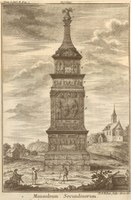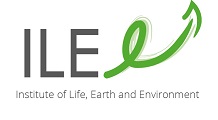Thesis defence by Olivier Latteur
- https://ilee.unamur.be/events/thesis-defence-by-olivier-latteur
- Thesis defence by Olivier Latteur
- 2021-11-17T14:30:00+01:00
- 2021-11-17T16:30:00+01:00
- When Nov 17, 2021 from 02:30 PM to 04:30 PM (Europe/Brussels / UTC100)
- Where Amphithéâtre E01 (Adam Smith, Rempart de la vierge 8 5000 Namur)
-
Add event to calendar
 iCal
iCal
 Title: Cohabiter avec l’Antiquité (XVIe-XVIIIe siècles). Antiquarisme, traditions locales et impact paysager des vestiges antiques dans les Pays-Bas méridionaux et la principauté de Liège. (1565-1794)
Title: Cohabiter avec l’Antiquité (XVIe-XVIIIe siècles). Antiquarisme, traditions locales et impact paysager des vestiges antiques dans les Pays-Bas méridionaux et la principauté de Liège. (1565-1794)
Wednesday, 17th of November 2021
14:30-16:30 - Amphithéâtre E01
During the early modern period (16th-18th centuries), Antiquity fascinated. Artists, scholars and travelers visited the Italian peninsula to admire its remarkable Roman ruins. Although several research projects focus on this topic in Italy, the interest given to the vestiges of the former provinces of the Roman Empire remains largely unknown. This doctoral research examines the reception of these antique remains in the Southern Netherlands and the Principality of Liège, an area which corresponds to present-day Belgium, Luxembourg and northern France and which offers an atypical set of Roman vestiges (roads, barrows, walls, mausoleums, etc.) or considered as such. Using a diverse corpus of sources in different languages, this study highlights the complex relationship that early modern society had with the material remains of its ancient past.  The Roman ruins deeply marked the local landscape and stimulated the imagination of the population. They aroused the interest of scholars and antiquarians, who developed an empirical method that gradually revealed the region's ancient past. These remains also constituted symbols of identity that illustrated and demonstrated the antiquity of the local communities, at a time when antiquity and prestige were closely linked. As such, they were used as evidence in investigations and controversies related to the past of these communities.
The Roman ruins deeply marked the local landscape and stimulated the imagination of the population. They aroused the interest of scholars and antiquarians, who developed an empirical method that gradually revealed the region's ancient past. These remains also constituted symbols of identity that illustrated and demonstrated the antiquity of the local communities, at a time when antiquity and prestige were closely linked. As such, they were used as evidence in investigations and controversies related to the past of these communities.
More information in French.
Olivier will present the results of his PhD thesis, conducted in the History Department (PolleN) under the supervision of Isabelle Parmentier and Françoise Van Haeperen (UCLouvain). (The presentation will be in French)
 Institute of Life, Earth and Environment
Institute of Life, Earth and Environment
